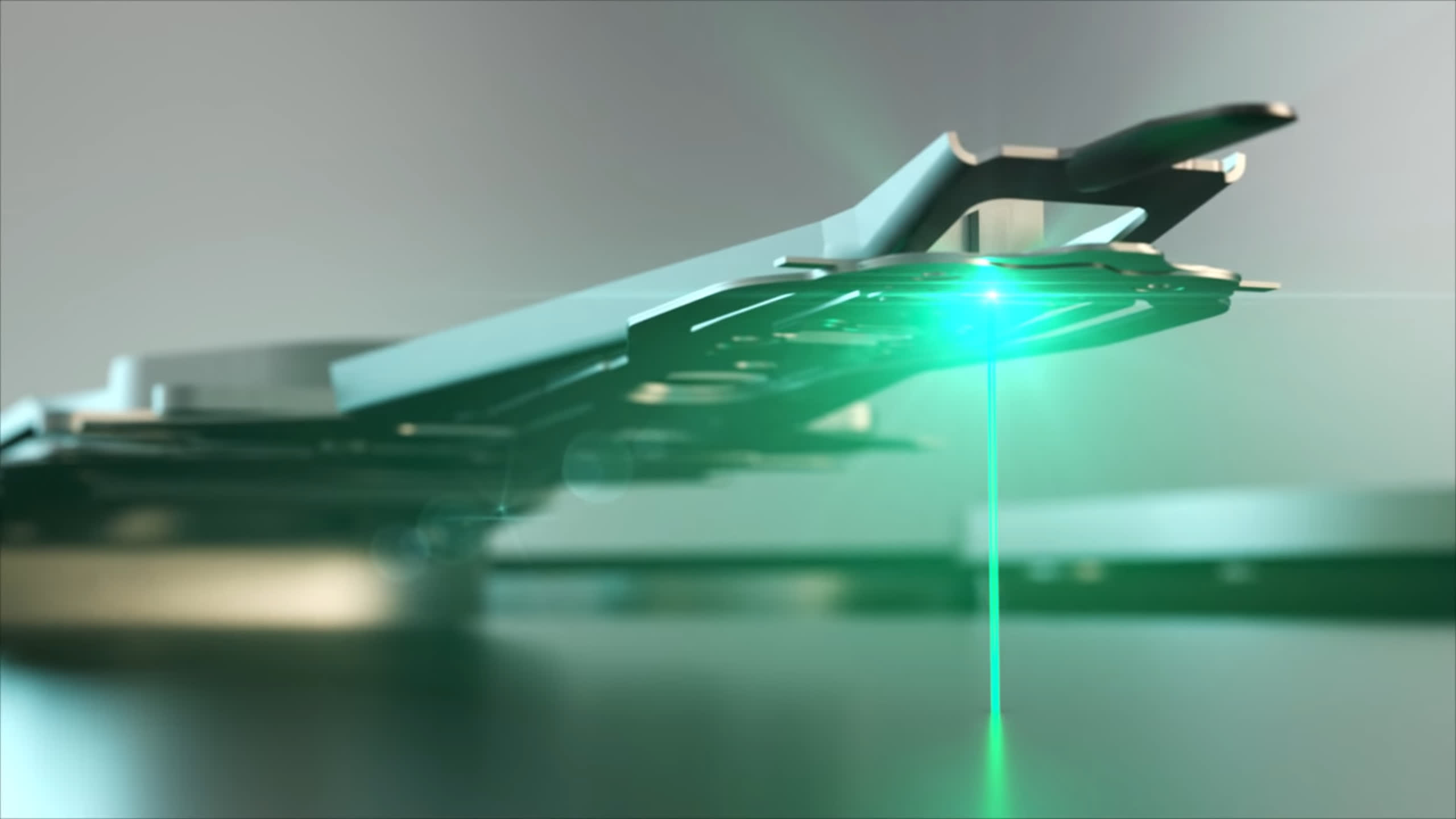Forward-looking: Seagate has invested a huge amount of money and energy into a HAMR-powered future for storage based on magnetic technology. Now the company says it's almost ready to bring its next generation of HDDs to enterprise and consumer customers alike.

The future of magnetic storage will begin in the third quarter of 2023, as Seagate has announced its latest plans to start mass production of second-generation HAMR-based hard disks. In its latest conference call for investors, the storage giant said that the launch of its newest HDD "platform" will be "ahead of schedule," while efforts to improve yields (and, of course, margins) are ongoing.
Despite the dire situation the storage market is experiencing right now, Seagate is looking at the future: Heat-Assisted Magnetic Recording (HAMR) uses a laser diode attached to each recording head to "momentarily heats a tiny spot on the disk," the company explains, so that data bits written on a magnetic platter become smaller and more densely packed than ever "while remaining magnetically and thermally stable."
Seagate has already shipped limited amounts of HAMR-powered HDDs to selected customers for testing, but the technology is seemingly almost ready for the mass production of consumer and enterprise hard drives. The speed of the initial HAMR volume ramp-up "will depend on a number of factors," Seagate said, such as product yields or customer qualification timelines.
For the first and second quarters of 2023, Seagate still plans to rely on conventional magnetic recording technologies to push HDD capacities to new heights. In Q1 or Q2, the company will release new 10-platter models using perpendicular or conventional magnetic recording (CMR/PMR), cramming 2.2 terabytes on every platter for a total 22TB capacity. Using the slower shingled magnetic recording (SMR) tech, Seagate will offer 24TB models to customers willing to adopt it for "certain applications."
Second-gen HAMR platters will eventually be able to cram 5 terabytes of data on a single platter, Seagate estimates, while the first mass-produced HAMR HDDs will offer "only" 30 terabytes of nominal storage capacity. HAMR hard disks with 40TB of storage are expected for 2024 or 2025, while 50TB models could arrive in 2026.
For now, the main problem of HAMR drives is yield – and it will stay like this for the upcoming years as well. In 2023, Seagate said, the share of HAMR-based HDDs on the market will probably still be "relatively low." Major production improvements should arrive in 2024, with further acceleration in 2025. Improved yields will bring the heat-assisted technology to midrange or even low-range HDD models as well.
https://www.techspot.com/news/97409-seagate-30tb-second-generation-hamr-hard-disks-almost.html